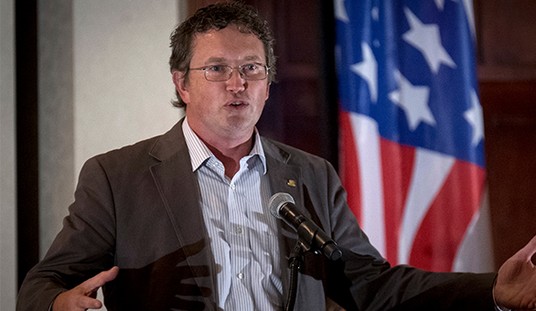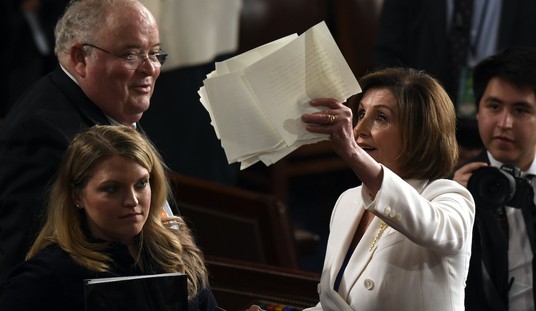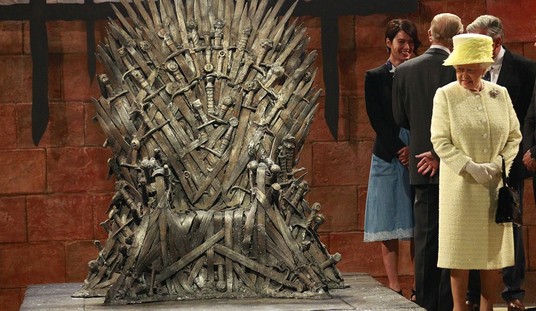“Can my children be friends with white people?”
This is the opening question proposed by law professor Ekow N. Yankah, not in some fringe, black nationalist publication but the New York Times.
Yankah’s maudlin and meandering pro-segregation argument is so full of contradictions and sadness that there is almost too much to unpack. He begins by sharing what should be a familiar story to most American parents, regardless of race. His 4-year-old is trying to decide just how many best friends a person is allowed to have. He’s got mom, dad, brother…who else? His father doesn’t seem inclined to provide an appropriate answer – which would be something like “Who are some of your other favorite people?”
Instead, he immediately and inexplicably links his young son’s earnest inquiry to the events in Charlottesville and racism.
But even a child’s joy is not immune to this ominous political period. This summer’s images of violence in Charlottesville, Va., prompted an array of questions. “Some people hate others because they are different,” I offer, lamely. A childish but distinct panic enters his voice. “But I’m not different.”
Now, consider this…Mr.Yankah has just had to explain the inexplicable to his precious, innocent son. “Some people hate others because they are different.” Without any apparent self-awareness he then goes on to pen an entire op-ed about how his son probably shouldn’t be friends with…wait for it…people who are different.
Mind. Blown.
He goes on to write the typical “Donald Trump’s America” fare as if he himself doesn’t still go to work every day to earn that very plush paycheck just like he did before Trump was elected. But I guess the justification for segregation won’t sound so awful if it is couched in “fear” first. In fact, the deeper you dig into the piece, the more you realize it is but one degree removed from Jim Crow era sensibilities.
The law professor says that while he grew up in a diverse and accepting Midwestern town, Trump changed everything about how trustworthy white people can be seen to be.
What’s surprising is that I am heartbroken at all. It is only for African-Americans who grew up in such a place that watching Mr. Trump is so disorienting. For many weary minorities, the ridiculous thing was thinking friendship was possible in the first place. It hurts only if you believed friendship could bridge the racial gorge.
Of course, the rise of this president has broken bonds on all sides. But for people of color the stakes are different. Imagining we can now be friends across this political line is asking us to ignore our safety and that of our children, to abandon personal regard and self-worth. Only white people can cordon off Mr. Trump’s political meaning, ignore the “unpleasantness” from a position of safety. His election and the year that has followed have fixed the awful thought in my mind too familiar to black Americans: “You can’t trust these people.”
“These people.” It seems Mr. Yankah has done just what he accuses “these people” of doing in various parts of his editorial – painting one group of people with a broad brush and assigning the most nefarious of intentions to them based on nothing more than their skin tone and who they may or may not have cast a vote for in one single election.
But Mr. Yankah does various linguistic summersaults to address even that point.
But the deepest rift is with the apologists, the “good” Trump voters, the white people who understand that Mr. Trump says “unfortunate” things but support him because they like what he says on jobs and taxes. They bristle at the accusation that they supported racism, insisting they had to ignore Mr. Trump’s ugliness. Relying on everyday decency as a shield, they are befuddled at the chill that now separates them from black people in their offices and social circles. They protest: Have they ever said anything racist? Don’t they shovel the sidewalk of the new black neighbors? Surely, they say, politics — a single vote — does not mean we can’t be friends.
I do not write this with liberal condescension or glee. My heart is unbearably heavy when I assure you we cannot be friends.
So just like that, “everyday decency” is a shield – as if one couldn’t act with decency simply because they are a decent person. It seems every one of Yankah’s interactions with the people around him is conditional, and thus he ascribes the very same qualities to white people. He can’t imagine a world where people simply accept each other for who they are and where they are in their own lives. It makes one wonder what other conditions he places on the people he loves in his life. Will his son lose his father’s love and approval if he grows up to be conservative one day? Or to marry a white woman? Or a white man? As a parent it’s quite unnerving to imagine the ways Yankah’s sweet baby boy is working out the conundrums of what his father is telling him inside his tiny, developing mind. Kids have a way of making every problem about themselves. If Baby Yankah’s own father is telling him people have value based on very surface-level assessments, how will Baby Yankah end up twisting his own self into pretzels for his father’s approval as he grows up?
Yankah’s insistence that he is not trying to condescend is as hollow as his argument.
This is the type of thoughtless tripe that can only be produced from inside the elite, rich, liberal bubble of coastal academia. He is so far removed from the average lives of average Americans he cannot conceive of a world in which people with differing views and even offensive views live side-by-side and still develop deep and lasting relationships that help each other thrive and succeed.
Yankah’s manufactured attachment to the value of one vote of one person in one election in one country on one continent in one year in one century of the whole of human history renders his New York Times piece ridiculous and deeply sad.
When God became man in the form of Jesus, he created a revolution. He didn’t socialize and live with the “righteous” and the “clean” of his day. He came close to the most undesirable people of his time. He broke bread with the most hated and reviled in the political class – Trump voters tax collectors. He elevated the status of women second-class citizens. He washed the feet and touched the faces of drug addicts those considered gross and unlovable. He deliberately sought out people who were looked upon with derision and revulsion and loved them in spite of their circumstances and decisions.
It costs us nothing to love people who are like us and who like us. It costs so very, very much to love people who aren’t like us…and don’t like us.
As I’m sure Yankah’s own parents told him at some point – nothing worth having is easy.
Yankah’s disappointing, sweeping judgmental ideology is not only a bigoted choice, it is the easy choice. What seems less easy is how on earth he will look his son in the eye one day and justify why it is acceptable to hate people because they are different.
And sir, in case you need some advice on addressing that issue, let me help you…
It isn’t.














Join the conversation as a VIP Member